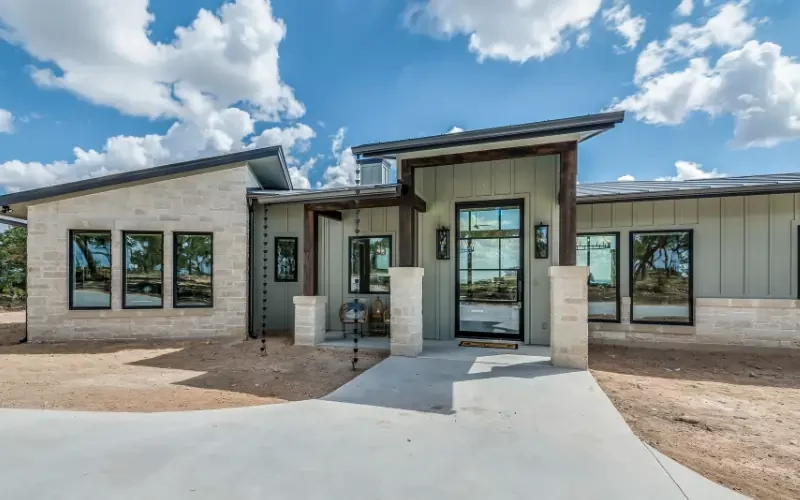
So you’re wondering what your house is actually worth? You’re not alone. Whether you’re thinking about selling, need to refinance, or you’re just curious about how much equity you’ve built up over the years, knowing your current home’s value is pretty important stuff. The good news is that figuring out what your property is worth doesn’t have to be rocket science, and you don’t need to break the bank doing it either. While some folks worry about things like appraisal costs in Texas, there are actually plenty of ways to get a solid home value estimate at little or no cost.
Why Estimating Your Home’s Value Matters
Look, we get it – sometimes you just want to know what your biggest investment is worth. But beyond satisfying your curiosity, there are some pretty practical reasons to know your home’s value. Maybe you’re thinking about tapping into your equity with a cash-out refinance or home equity loan. Or perhaps you’re considering selling and want to know if now’s the right time.
Here’s the thing, though – the housing market moves fast, especially here in Texas. What your neighbor’s house sold for last year might not tell you much about what yours is worth today. Having a current market value estimate helps you make smart decisions, whether that’s about home improvements, refinancing your mortgage, or figuring out your next move.
And if you are thinking about selling? Well, knowing your home’s worth ahead of time means you won’t get caught off guard by any offers that come your way. You’ll know whether that cash offer is fair or if you should hold out for something better.
If you need to sell your house fast in Granbury, we can close in as little as 7 days with a fair cash offer and no repairs required.
Key Factors That Affect a Home’s Worth in Texas
Let’s talk about what actually drives your home’s value. Location is still king – we’ve all heard “location, location, location” a million times, but it’s true. A house near good schools, shopping centers, and job hubs is going to be worth more than the same house in the middle of nowhere.
Your home’s condition matters a ton, too. Those home improvements you’ve been putting off? They’re probably affecting your value more than you think. On the flip side, that beautiful new kitchen or those energy-efficient windows you installed last year are likely paying dividends in increased home value.
Market conditions can make your head spin if you try to follow them too closely, but here’s what you need to know: when there aren’t many homes for sale and more buyers are looking, prices go up. When the current market is flooded with similar properties and buyers have tons of options, well, that’s when things get competitive and prices might soften up.
The funny thing about Texas is that what’s happening in Houston or Dallas might be completely different from what’s going on in your neck of the woods. Real estate professionals know that many factors can affect local markets, and what’s hot in Austin might be cooling off in Amarillo due to several factors, including job growth, population changes, and local economic conditions.

Step-by-Step: How to Estimate Your Home Value
Gather Property Details and Recent Upgrades
First things first – you need to know what you’re working with. Walk around your house and make notes about the basics: how many bedrooms and bathrooms, total square footage, lot size, garage spaces, that sort of thing. Don’t forget about any improvements you’ve made in the last few years. That new roof, updated HVAC system, or fancy new flooring all add value.
Be honest about your home’s current condition, too. I know it’s hard to be critical of the place you love, but try to see it through a buyer’s eyes. What might they love? What might make them wrinkle their nose a bit?
Compare Recent Sales of Similar Homes (Comps)
This is where things get interesting. You want to find homes that sold recently (we’re talking the last six months) that are similar to yours. Similar size, similar neighborhood, similar features. This is called pulling comps, and it’s probably the most reliable way to get a ballpark figure for your home’s value.
Here’s a pro tip: focus on what houses actually sold for, not what they were asking. That house down the street might have been listed at $350,000, but if it sold for $325,000, that’s the number that matters. Public records will show you the real sale prices, and there are plenty of online tools that make this easier than ever.
Use Online Home Value Estimators (With Caution)
We’ve all seen those “What’s your home worth?” ads online. These online home value estimator tools can give you a quick starting point, but take them with a grain of salt. They’re basically computer programs that look at recent sales, tax records, and market data to spit out an estimated value.
The thing is, these online estimates don’t know that you just renovated your kitchen or that your neighbor’s house has been neglected for years. Use a few different estimator home platforms and see what kind of range you get, but don’t bet the farm on these numbers.
Get a Comparative Market Analysis (CMA)
Want something more detailed than an online estimate but not quite as formal as an appraisal? A Comparative Market Analysis from a local real estate agent might be just the ticket. Most agents will do this for free if you’re considering selling and would use them as your listing agent because they have access to data that we regular folks don’t.
A good CMA will show you what’s sold recently, what’s currently for sale, and what didn’t sell (and why). Real estate agents understand the local market in ways that computer algorithms just can’t match. They know that the house on Elm Street sits on a busy road or that the property on Oak Avenue backs up to a commercial area. Just be prepared that asking a realtor may come with strings attached.
Consider a Professional Appraisal
Okay, so maybe you want the gold standard – the real deal when it comes to figuring out what your house is worth. That’s where a professional appraisal comes in. Yeah, you’re going to shell out some cash (we’re talking anywhere from $300 to $600 or more,, depending on your home), but here’s what you get for your money.
A licensed appraiser will actually show up at your door, walk through every room, measure everything twice, snap photos, and basically give your subject property the full treatment. These folks are trained to spot things that affect value that the rest of us might miss. They’ll notice that your kitchen renovation used high-end materials, or that your foundation has a small issue that needs attention.
Here’s why mortgage companies love appraisals – they’re done by someone who doesn’t care whether you buy, sell, or refinance. The appraiser’s job is just to determine home value based on cold, hard facts and available data from comparable homes in your area.
This route makes the most sense when you need an official number for a particular purpose – like refinancing, settling an estate, or if your house is so unique that it’s tough to find nearby homes to compare it to.
Review Texas Housing Market Trends for 2025
Don’t ignore the big picture here. What’s happening in the overall market affects your home’s value too. Are prices going up in your area? How long are houses sitting on the market? Is it easier for buyers or sellers right now?
Here’s the thing about Texas – our markets can be all over the place. What’s hot in Austin might be cooling off in Amarillo, and current market conditions can fluctuate based on different factors like local job markets, new construction, and even things like major employers moving in or out of town.
Focus on trends in your specific area and property type. Don’t get caught up in what’s happening three counties over – it probably doesn’t affect your house worth much. A local real estate professional can give you the real scoop on what’s happening in your neighborhood, not just the statewide averages you see on the news.
Comparative Market Analysis vs. Professional Appraisal
So what’s the real difference between getting a CMA and paying for an appraisal? Think of it this way – a CMA is like asking your smartest friend, who happens to know the neighborhood really well, what they think your house could sell for. It’s helpful, it’s free, and it gives you a good ballpark estimate based on current market conditions.
An appraisal? That’s more like hiring a detective who specializes in house values. They’re going to dig deep, look at other factors you might not think about, and give you an official report that banks and lawyers will actually accept. The appraiser doesn’t care if you’re happy with the number – they’re just calling it like they see it.
If you’re just testing the waters or thinking about selling, start with a CMA. But if you need an official number that’ll hold up in court or satisfy your mortgage company, that’s when you want to invest in a professional appraisal. For example, if you’re refinancing or dealing with a divorce settlement, you’ll probably need the formal appraisal route.

Common Mistakes When Estimating Home Value
Here’s where a lot of folks trip up. The biggest mistake we see is homeowners thinking their house is worth what they paid for it plus whatever they’ve spent on improvements. That’s not how it works. The market doesn’t care what you paid or how much you’ve invested – it only cares what buyers are willing to pay right now.
Another common error is using the wrong comparable properties. Your 1,500-square-foot ranch isn’t comparable to your neighbor’s 2,500-square-foot two-story, even if they’re on the same street. And please don’t use sales data from a year ago – in today’s market, that might as well be ancient history.
We get it – you love your house. We all have emotional attachments to our homes. But when you’re trying to estimate value, you’ve got to put on your business hat. That custom purple bathroom tile you love? A buyer might see it as something they’ll have to replace.
Next Steps After You Estimate Your Home’s Value
Alright, so now you’ve got a pretty good handle on what your house is worth – what’s your next move?
If selling is what you’re thinking about, here’s a quick math exercise: take your estimated value and subtract what you still owe on your mortgage. That’s your equity right there. But hold on – don’t spend it all in your head just yet. You’ll need to factor in the average closing costs for sellers, which include things like title insurance, transfer taxes, attorney fees, and other expenses that can really add up.
Thinking about refinancing instead? You’ll want to compare your current home value to your mortgage balance. This gives you what’s called a loan-to-value ratio, and it’s basically what determines whether you can refinance and what kind of rates you might qualify for.
Maybe you’re considering tapping into your equity with a home equity loan to fund some projects or pay off high-interest debt. Your estimated value minus your mortgage balance gives you a rough idea of how much equity you could potentially access, though most lenders will only let you borrow against a portion of it.
Now, if selling really is on your radar, you’ve got some choices to make. The traditional route through a real estate agent works for plenty of folks, but let’s be honest – it comes with marketing time, endless showings, commissions, and all the stress that goes with it. When you add up the total cost of selling a house the old-fashioned way – realtor fees, closing costs, repairs you’ll need to make, and carrying costs while your house sits on the market – it can really eat into your profits.
Want to learn more about our company, Four19 Properties, and how we buy houses for cash without the typical hassles of traditional sales?
Conclusion
Figuring out your home’s value doesn’t have to be overwhelming. With the right approach and a little bit of legwork, you can get a pretty solid estimate of what your property is worth in today’s market. Use multiple sources, be realistic about your home’s condition, and remember that markets change.
The key is staying informed about your most valuable asset so you can make smart decisions when the time comes. Whether you’re planning for the future or ready to make a move today, knowing your home’s value puts you in the driver’s seat.
If you’re ready to sell and want to skip all the traditional headaches, cash home buyers in Arlington and throughout Texas offer a straightforward alternative. We’re Four19 Properties, and we’ve been helping Texas homeowners like you for years. We buy houses in Texas as-is, close quickly, and don’t charge any commissions. Want to see what we could offer for your home? Get a cash offer today – there’s no obligation and no pressure, just straight talk about your options.
